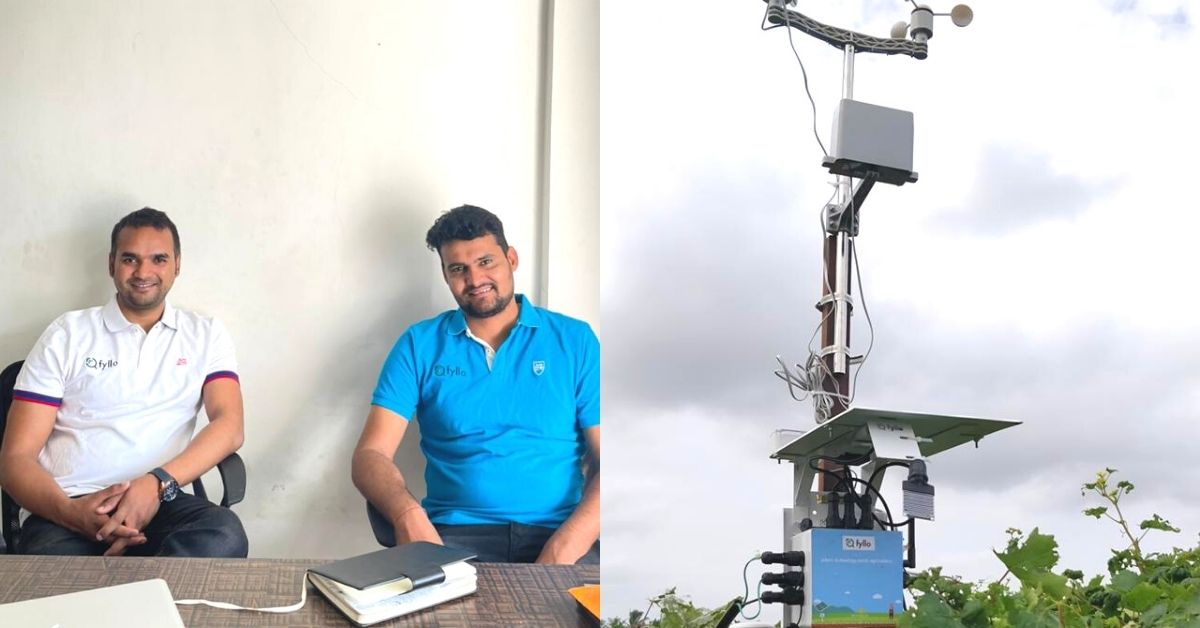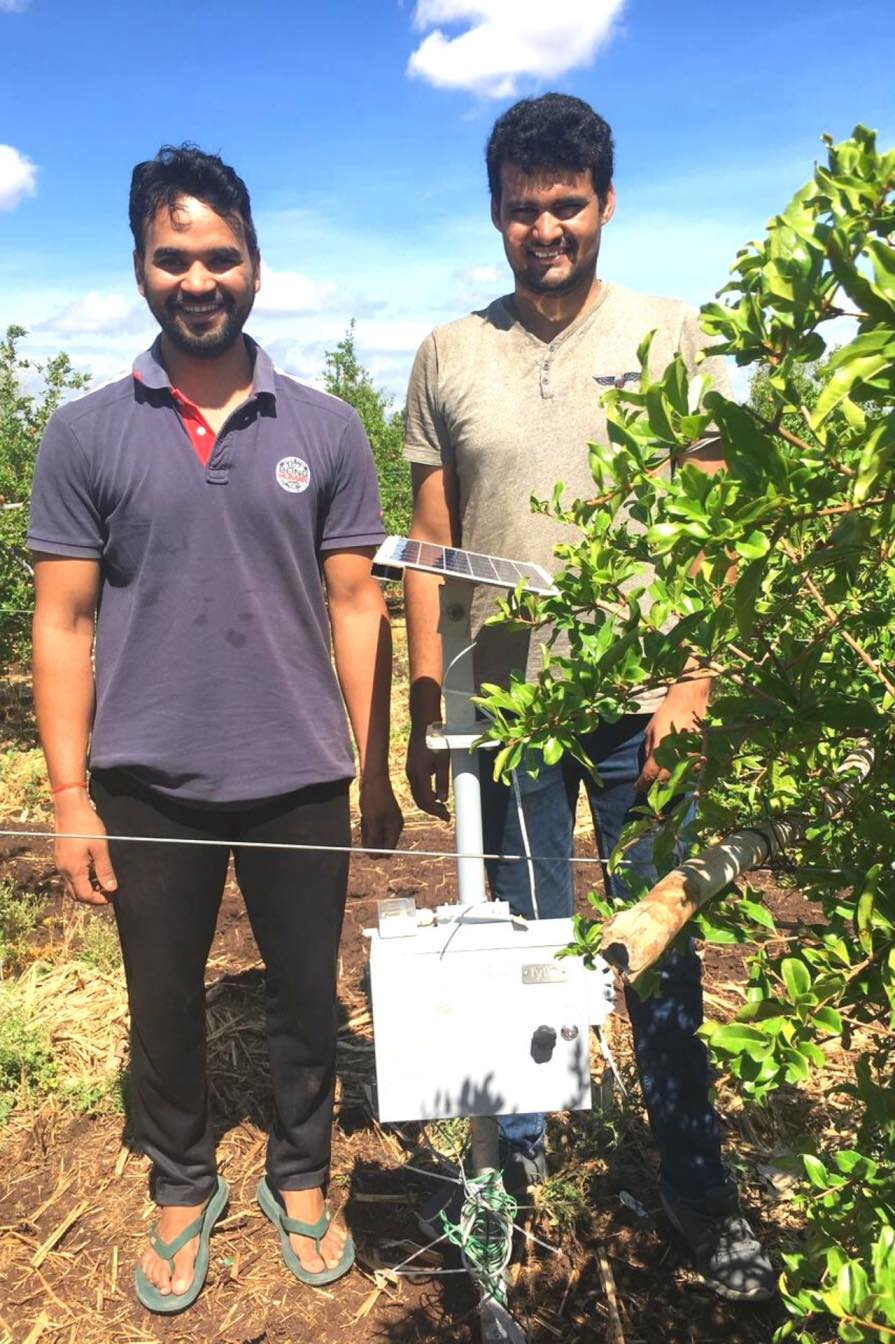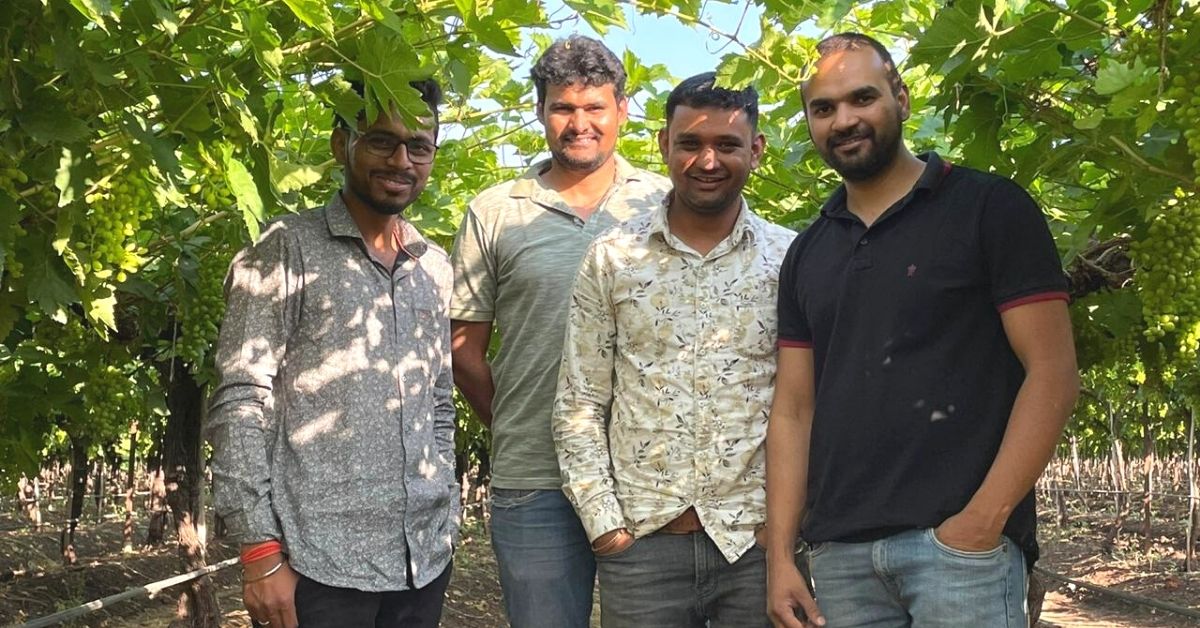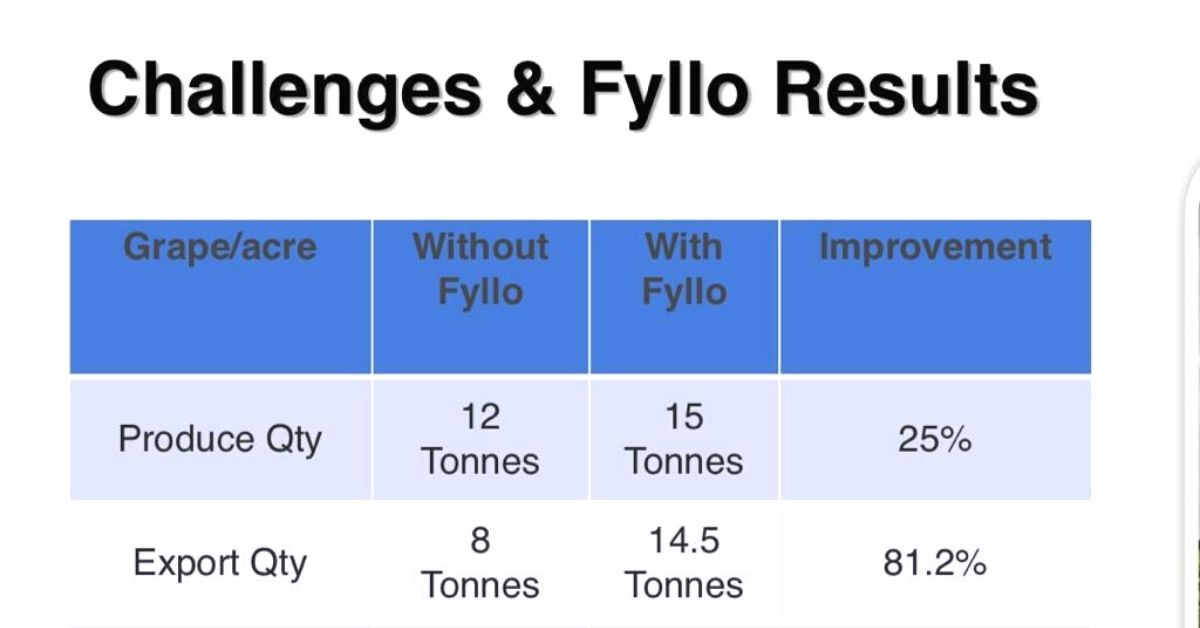Bengaluru Startup Helps Farmers Grow Healthy Crops, Save 50 Million Litres of Water
Sumit Sheoran and Sudhanshu Rai launched Fyllo, a Bengaluru-based Agritech startup in an effort to solve the major problems that plagued farmers. Their device, integrating software and hardware, helps sense and analyse real-time data of crops and predict diseases

Roshan Zalte, a grape farmer from Maharashtra, rushed to his vineyard one morning to inspect his crop after a mobile app suggested his crop was infected with a common fungal disease called Downy Mildew. On inspecting some of the leaves, he found it to be true. “The crop seemed to be okay on the surface, but a closer look revealed the beginning of the infection,” says Roshan, who has a vineyard spread across 15 acres of land.
A few months earlier, the grape farmer had installed a device in his vineyard that claimed to help analyse weather conditions, predict diseases infesting his crop along with guiding him through their entire growth trajectory. The data would be shared with the help of an app.
Today, the farmer says, without the device he would remain unaware of the Downy Mildew infection on his crop for almost a week. The notification allowed him to make necessary interventions and control the spread of the disease. Since 2019, hundreds of farmers, like Roshan, have benefited from the device from a Bengaluru-based startup — Fyllo.
The startup says that over 500 farmers have used the device since its launch in 2019, saving 50 million litres of water and allowing for better quality produce.
Real-time analysis of crops

Founders of the startup, Sumit Sheoran and Sudhanshu Rai were colleagues in a Bengaluru-based IT firm and came from farming families.
Being aware of the issues that plagued farmers since childhood, their discussions often involved exploring solutions for the community. But it was only after three years of working together that they decided to launch a startup that would help the community.
“We were not sure about which area to address and therefore started listening to the Kisan call centre — a government reach out programme for farmers. After analysing the common queries, we realised that 85 per cent of the questions asked by farmers were about diseases affecting crops. We studied 15 million queries out of which 12 million involved farmers asking about what diseases they could expect in their farm,” says 28-year-old Sumit, an IIT Roorkee alumni.

Sumit adds that they decided to develop a device integrating software and hardware to sense and analyse real-time data of crops and predict diseases. Explaining the concept, Sumit says a 15×15 cm device weighing about 1.5 kg is installed in a farm analysing 13 parameters, including humidity, wind, rainfall, temperatures and so on. The device connected to the server calculates the data to predict rainfall, the amount of sunlight and diseases the crops may be susceptible to. The device is solar powered and battery operated. The sensors are plug and play allowing ease of installation.
“The farmers register on our Fyllo mobile app, add details about the crop they are growing, the type of soil, and other basic information. The device then starts analysing the data and guides the farmer about when to irrigate the farm, what precautions to take, timely steps to initiate for the best productivity of the crop,” Sumit says adding that the farmers only need to irrigate the land when the notification is received. This process, the duo claim, has helped save 50 million litres of water.The startup calculated the irrigating patterns of the farmers on parameters such as frequency and time duration for each cycle. “The farmers who used to irrigate the farms once in five days for about 14 hours a day, changed the frequency to once in 10 days and watered their farms only for seven hours daily. The irrigation pattern changed as the app suggested the quantity and frequency of water to be released for the farm, depending on the weather conditions. Such practices helped to reduce excess water used for irrigating the farms,” he adds.
He further adds that depending on the rains and micro-climatic conditions, the device predicts the diseases that may ensue. “This helps in two ways. The advance notification helps reduce the cost of treating the disease through interventions in the early stages. The other benefit is that since the damage is less or avoided, the farmers do not face any loss in the final farm produce,” he explains.
A shared approach
Sumit says the device can predict weather conditions and its impact on crops about 15 days in advance, specific to the crops and location. Each device costing Rs 50,000 can cover 100 acres of agricultural land. “A large group of farmers can invest in a single device. Here, each farmer has to register and enter the different varieties of crops they are growing. Accordingly, personalised notifications are issued,” he adds.

Sudhanshu Rai, the co-founder, says the scientific approach through efficient irrigation and timely interventions, improves the quality of produce. He adds, “Many farmers agreed to have been able to export some of their agricultural produce, which has benefited them economically.”
Though many farmers are reaping the benefits, Sudhanshu says that it was initially difficult to convince farmers to use their product. “We introduced a subscription model where the farmers could try the device for a few months and once they’re convinced of its benefits, they could make the purchase. We shifted base to Nashik and spent over a year with the farmers to improve the product and address the issues on the ground by including valuable inputs from farmers. The farmers were willing to accept the technology that predicts diseases but doubted the accuracy. The challenge of internet connectivity was an issue and persists in remote parts,” he adds.
However, more work lies ahead for the duo as the device only works on crops like grapes, capsicum, tomato, potato and pomegranate. “We plan to add functionality for guava, banana and five other vegetables in coming months,” Sudhanshu says.
He says that to have farmers on board from Maharashtra and Karnataka. “We will start working with more farmers from Gujarat and Tamil Nadu soon,” he adds.
(Edited by Yoshita Rao)

Similar Story

How Narain Karthikeyan, India’s 1st F1 Driver, Built a Successful Startup in Just 3 Years
Narain Karthikeyan, India’s first Formula 1 race car driver, now runs a business of refurbished bikes, which employs around 250 people and is backed by approximately $11 million in funding.
Read more >
If you found our stories insightful, informative, or even just enjoyable, we invite you to consider making a voluntary payment to support the work we do at The Better India. Your contribution helps us continue producing quality content that educates, inspires, and drives positive change.
Choose one of the payment options below for your contribution-
By paying for the stories you value, you directly contribute to sustaining our efforts focused on making a difference in the world. Together, let's ensure that impactful stories continue to be told and shared, enriching lives and communities alike.
Thank you for your support. Here are some frequently asked questions you might find helpful to know why you are contributing?


This story made me
-
97
-
121
-
89
-
167












